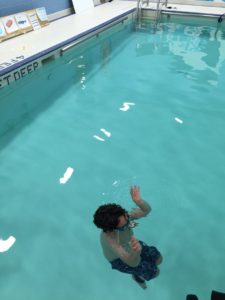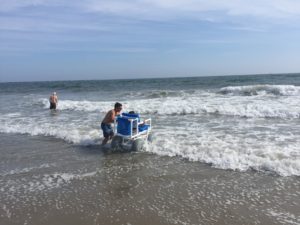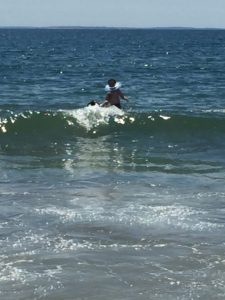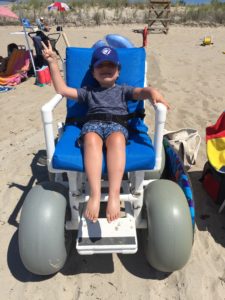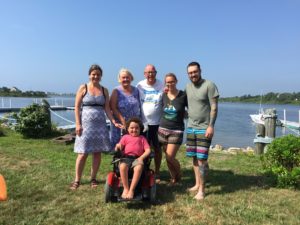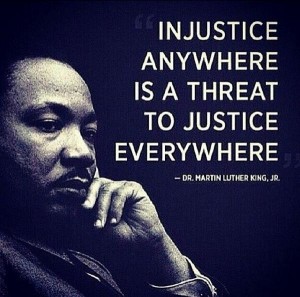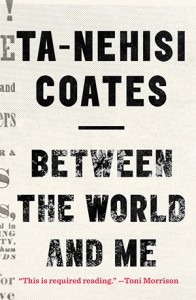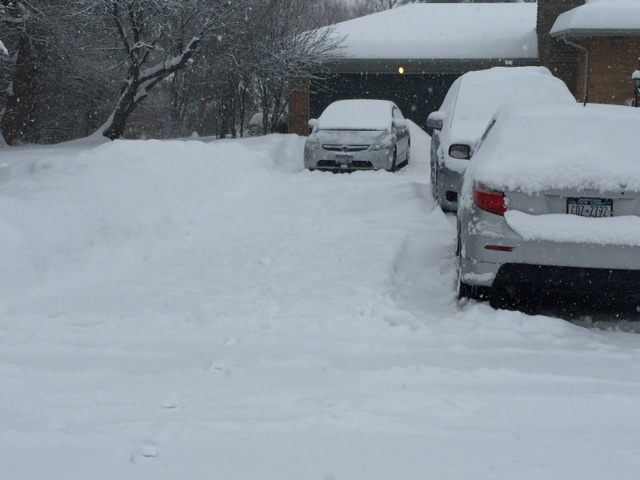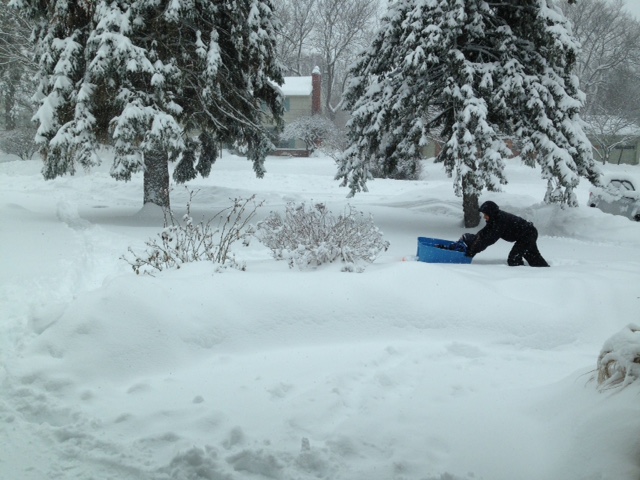On Friday nights we tend to have “movie night” which usually means watching a show of one kind or another. On Thursday last week Oscar’s aqua PT happened to mention that the Paralympics had started and so on Friday for movie night we watched the Paralympics! This is something I believe I have never done before. Certainly Oscar has never seen them. He was blown away—as were David and I.
For folks who might not know, the Paralympics is an international sporting event planned in conjunction with the Olympic Games, taking place in the same arenas as the Olympics, with athletes who have disabilities. The training, the commitment, the seriousness of the events is parallel to that of the Olympics.
And we were blown away. To watch the way swimmers with one arm break world records. To watch blind runners with exactly as much power and precision as athletes in the, what should I call them, “regular” Olympics. To watch swimmers zooming out in their wheelchairs to prepare for their race, to watch athletes take the medal podiums (which are fully accessible) in wheelchairs. To simply be able to watch people whose bodies don’t align with society’s expected norm on the screen, any screen, is remarkable.
And these are Olympic athletes. Athletes who are war veterans, athletes who were born blind, athletes who have experienced a trauma that has changed the shape of their body, athletes who were born with part of an arm or a leg, or both missing. Athletes who were born with cerebral palsy, or spina bifida, or something that falls within the realm of muscular dystrophy. Athletes who are like my boy.
As we were watching Oscar kept saying, “This is amazing. Look, she only has one leg. This is amazing. Watch her swim.”
And then he said, “It’s so cool there is an Olympics not just for people who are normal.”
Then there was a pause in which David and I each opened our mouths part way and before either of us had a chance to speak Oscar said, “I mean of course people with disabilities are normal. It’s not like they’re a monster. They’re still a human being. It’s just what some people think of them as not being normal even though they are.”
What a moment of pride. David and I locked eyes over Oscar’s head with the biggest smiles. How full our hearts.
In the last two days we have watched swimming (Oscar’s favorite), a little bit of wheelchair basketball, track and field including high jump, javelin, shot put (for which a man in a power wheelchair took the gold), 100m dash. They even have grand swimming pool ceilings!
Here’s the catch of course: this is not aired on regular TV. I have never had cable, but if you do you can watch on NBCSN. The catch there is the hours the games are aired. Yesterday, for example, events were only aired from 1:30 a.m. to 5:00 a.m. Yes, the hours when nearly everyone in the country is sleeping. However, for the next four nights, there will actually be primetime viewing from 7-9 pm! And you can stream the games on NBCSports.com.
Also, great news (and how we were able to watch this weekend) is that there is livestream available for many events and for many hours in the day.
Here is the link:
http://www.teamusa.org/rio-2016-paralympic-games/live-stream/watch-guide
The catch with this much more comprehensive live stream is that sometimes the events are aired with no sound coming from the arena. How bizarre to watch basketball without the sound of the ball hitting the floor or the backboard, the crowd cheering, the scuff of wheels on the wood floor.
And sometimes there is no commentary. So you can see an athlete strapped into a special chair, throwing their discus or shot put, you can watch as the athlete runs with the javelin and it lands and you can watch the landing point be marked, but no one is giving the usual Olympic commentary of who this athlete is, what their personal record is, who are their prime competitors, whether s/he is a medal contender or not. These events often take place on sports hall flooring, designed to accommodate a variety of sports and athletes. MUGA lining plays a crucial role in ensuring that these venues are accurately marked for multi-use games and activities, allowing athletes to perform at their best in a clearly defined space. Similarly, thermoplastic playground markings can be used to enhance the clarity and organization of outdoor sports areas, ensuring safety and performance standards are met. You can contact a sports hall line painting service to get an idea. For lighting, you may want to check out LED floodlighting. Or, click here to know more about tennis courts. And other times it is like watching the Olympics—all the sounds, all the commentary, the stories of what accolades the athlete already has under his or her belt, what personal challenges they have overcome, who from their family is in the stands—the good, human interest story of any Olympics.
Regardless, it is worth watching. Please take ten minutes, or a half hour, or several hours this week. Sit down with your kids and watch with reverence these amazing athletes who are getting very little press, simply because they are disabled. Watching this international sporting event is a way to break down barriers, to normalize physical differences, to teach yourself and your family that yes, absolutely, people in wheelchairs, people with missing limbs, people who have curled-in hands, or a limp, or who are blind are normal people. Are extraordinary people who compete in international sporting events, just like those involved in activities such as Multi Use Games Area Painting. You can also click here for more information on MUGA. These. Are people just like you and me.


